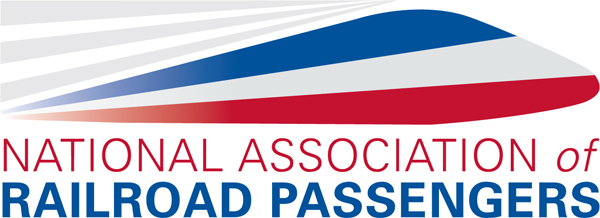Hotline #718
April 24, 1992
The Senate version of the Amtrak reauthorization bill, S.2608, was introduced April 8 and has the following co-sponsors -- Exon (Neb.), Hollings (S.C.), Kasten (Wis.), Burns (Mont.), Lott (Miss.), Adams (Wash.), Simon (Ill.), and Bradley (N.J.). One novel feature of the bill is its call for a consumer representative on the Amtrak board, who would have to be a NARP member and travel at least 5,000 miles a year on regular trains.
Congress returns from Easter break on April 27. One of the first tasks will be for the House Appropriations Committee to set 1993 funding ceilings for its 13 individual subcommittees, including transportation.
The Presidential Emergency Board dealing with Amtrak and other rail labor issues has asked for an extension to do their work. It is not clear how long that extension would be. The Board requested 30 days, but that would extend the cooling-off period to July 3, when Congress is gone and cannot legislate an end to any potential strike. The President may well grant a shorter extension. If you have travel plans in June or July, you will want to stay tuned to this story.
April 30 is the deadline for comments on the River Cities -- the address to write to is in the February newsletter. Amtrak was quoted on a Carbondale television station as saying only 35 responses had been received, implying that people do not care about the train. If you haven't yet written, do so right away.
Local travel between Chicago and St. Paul will be very difficult this summer, as Amtrak has apparently removed the local coach from the Empire Builder and subjected the rest of the seats to draconian yield management restrictions. This is yet another bad omen as Amtrak looks for ways to close up its 1992 operating budget gap.
The Amtrak board met on April 22. Revenues, passenger miles, and cost recovery are all still down year-to-date for fiscal 1992. In March, the best on-time railroad was Soo Line at 94%, and the worst was Norfolk Southern at 61%. The best long-distance train, amazingly enough, was the City of New Orleans at 95% on-time; the worst was the Coast Starlight at 39%. The greatest ridership gain in February was on the Adirondack at 38%, and the biggest loss was on the Clockers at 28%.
Mail service to Chicago, Memphis, and New Orleans is being phased in on the City of New Orleans from March 18 through the end of April. This new contract is worth about $310,000 annually.
The Iowa House approved an appropriations plan on April 20 that would have started a central Iowa Amtrak route as early as 1994. But yesterday, a Senate committee voted to do a ridership study instead, a move that could delay the train by at least a year. Iowa NARP members should call their State Senator and tell him or her to support the House plan, not the study. All Senators can be reached on 515/281-3371.
Census figures show that many more Washington-area people are driving to work than in 1980, and taking longer at it, according to the Washington Post. Despite government efforts to discourage single-occupant vehicles, carpooling is declining and transit use is stagnant. Could it be that we have the cheapest gasoline of any developed nation, cheaper in real terms than 40 years ago? Could it be that consumers regard the low cost of gas as irrelevant when they make their commuting decisions? This census report makes Virginia Governor Wilder's decision to veto a northern Virginia ballot initiative on raising the gas tax look even more short-sighted.
